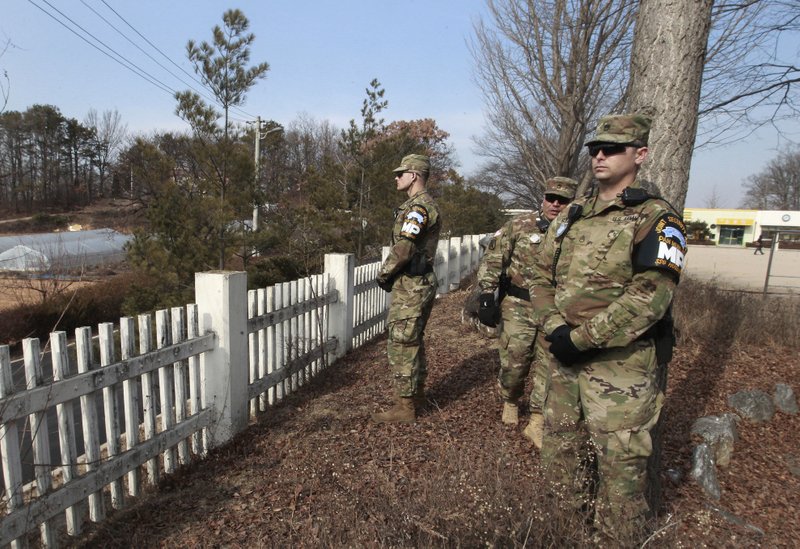SEOUL, South Korea -- South Korea and Japan vowed to shoot down any debris that falls on their territories from a long-range rocket that North Korea has said it will launch this month.
North Korea has informed international organizations that it will launch an observation satellite aboard a rocket between Monday and Feb. 25.
The launch announcement follows global condemnation of the North's fourth nuclear test Jan. 6.
South Korea's Defense Ministry said Thursday that the North is proceeding with the launch plans at its west coast Tongchang-ri launch site. Spokesman Moon Sang-gyun said South Korea is using Aegis-equipped destroyers, aircraft, sophisticated radars and other surveillance assets to monitor the North's launch preparations. He refused to provide further details.
Recent commercial satellite images showed an increased number of vehicles Monday at North Korea's Sohae launch station, compared with a week earlier. This suggests that the North is preparing for a space launch in coming weeks, according to 38 North, a North Korea-focused website run by the U.S.-Korea Institute at Johns Hopkins School of Advanced International Studies.
However, the website said it was impossible to tell from the satellite imagery whether a space launch vehicle was present.
South Korean and U.S. officials said a launch would threaten regional security and violate U.N. Security Council resolutions that ban the North from engaging in any nuclear and ballistic activities.
Diplomats at the Security Council already have pledged to pursue fresh sanctions on North Korea over its recent nuclear test.
South Korean President Park Geun-hye on Thursday called for strong U.N. sanctions that will make North Korea realize it cannot survive if it does not abandon its weapons programs.
China, the North's ally and a veto-wielding Security Council member, on Wednesday urged restraint over North Korea's announcement of its launch plans.
U.N. Secretary-General Ban Ki-moon said the North Korean announcement "will further aggravate the profound concerns that the international community already has in the wake of the recent nuclear test," a spokesman said.
In South Korea and Japan, there are fears about falling debris, although nothing landed in their territories during the North's most recent launches. Seoul officials estimated the first stage of the rocket would fall off the west coast of South Korea, more debris would land near the South's Jeju Island, and the second stage would land off the Philippines' east coast.
Moon, the South Korean military spokesman, said that South Korea would fire missiles to intercept the North Korean rocket or its fragments if they threaten to fall on its territories. Japan's defense minister said Wednesday he issued a missile-shoot-down order and deployed Aegis destroyers and PAC-3 missile defense units to around Tokyo and Okinawa in case debris falls on the Japanese territory.
Seoul and Tokyo issued similar plans before North Korean rocket launches in recent years.
North Korea has spent decades trying to develop operational nuclear weapons along with missiles capable of striking the mainland United States.
North Korea's last long-range rocket launch, in December 2012, successfully put the country's first satellite into orbit after a string of failures. Each new rocket launch improves North Korea's missile technology, which is crucial for its goal of developing a nuclear-armed missile capable of hitting the U.S. mainland.
North Korea, an autocracy run by the same family since 1948, is estimated to have a handful of crude nuclear devices and an impressive array of short- and medium-range missiles, but it closely guards details about its nuclear and missile programs. This means there is considerable debate about whether it can produce nuclear bombs small enough to place on a missile, or missiles that can reliably deliver their bombs to faraway targets.
Information for this article was contributed by Kim Tong-hyung and Mari Yamaguchi of The Associated Press.
A Section on 02/05/2016

